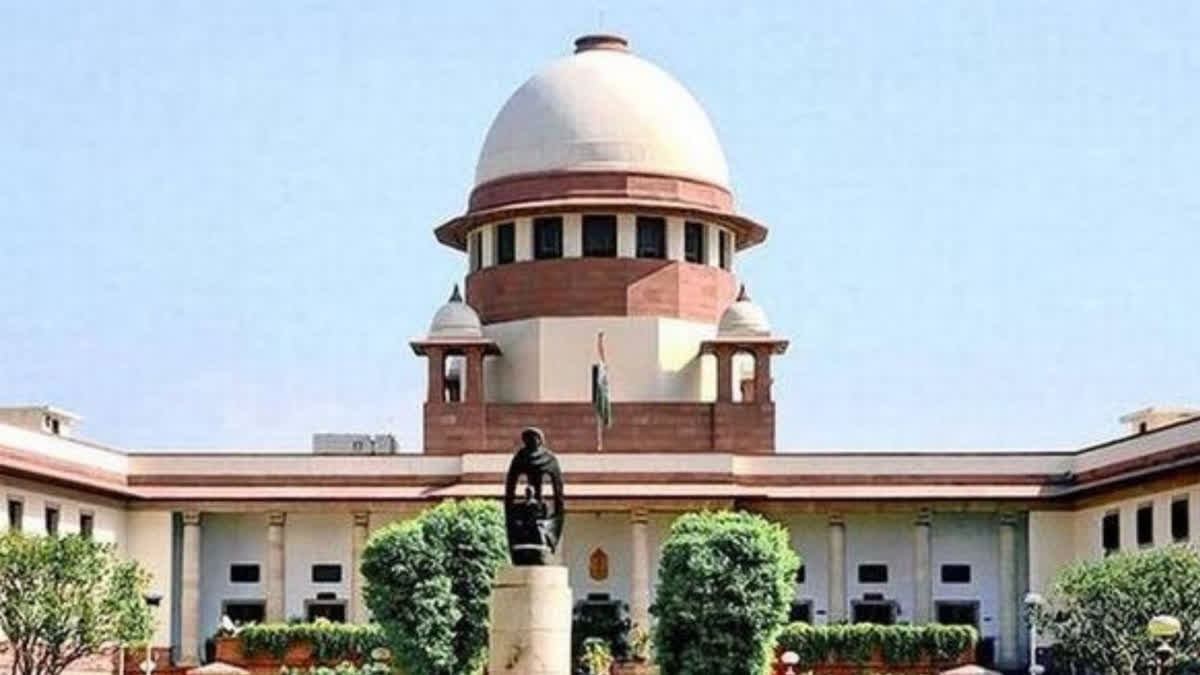New Delhi : The Supreme Court on Monday set aside a Punjab and Haryana High Court order, which gave relief to a 1991 IAS officer Ashok Khemka in a matter in relation with his performance appraisal. The apex court stressed that the process of evaluation of an IAS officer, more so a senior IAS officer entails a depth of expertise, rigorous and robust understanding of the evaluation matrix coupled with nuanced understanding of the proficiency required to be at the forefront of the bureaucracy.
“This administrative oversight ought to have been left to the executive on account of it possessing the requisite expertise and mandate for the said task”, said a bench comprising justices Vikram Nath and Satish Chandra Sharma.
The apex court said it is of the opinion that the division bench of the high court erred in law. “Accordingly, we set aside the judgement of the Division Bench of the High Court”, said the bench, allowing the appeal by the Haryana government against the high court judgment delivered on March 18, 2019.
“Additionally, as we have been informed that the Accepting Authority is yet to take a decision on the Underlying Representation, we direct the Accepting Authority to take a decision on the Underlying Representation under Rule 9(7B) of the PAR Rules within a period of 60 (sixty) days from the date of pronouncement of this Judgement. Thereafter, Respondent No. 1 (Khemka) is granted liberty to take recourse to remedies as may be available under law”, said justice Sharma, who authored the judgment on behalf of the bench.
The apex court said it is our opinion that the high court entered into a specialised domain i.e., evaluating the competency of an IAS officer by way of contrasting and comparing the remarks and overall grades awarded to Khemka by (i) the Reporting Authority; (ii) the Reviewing Authority; and (iii) the Accepting Authority, without the requisite domain expertise and administrative experience to conduct such an evaluation. “The High Court ought not to have ventured into the said domain particularly when the Accepting Authority is yet to pronounce its decision qua the Underlying Representation”, said the bench.
The apex court stressed that the overall grading and assessment of an IAS officer requires an in-depth understanding of various facets of an administrative functionary such as personality traits, tangible and quantifiable professional parameters which may include inter alia the competency and ability to execute projects; adaptability; problem-solving and decision-making skills; planning and implementation capabilities; and the skill to formulate and evaluate strategy. “The aforesaid indicative parameters are typically then analysed by adopting a specialised evaluation matrix and thereafter, synthesised by a competent authority to award an overall grade to the candidate at the end of the appraisal/ evaluation”, said the bench.
In June 2017, Khemka, was awarded an overall grade of 8.22 by the chief secretary, who was the reporting authority. His overall grade was upgraded to 9.92 reviewing authority, the Haryana health minister, but later in December 2017, the chief minister, the accepting authority, downgraded his overall grade to ‘9’.
Khemka moved the Central Administrative Tribunal (CAT) seeking deletion of the remarks and overall grades recorded by the accepting authority. He also sought restoration of the overall grades and remarks awarded by the reviewing authority. Khemka could not get relief from CAT. He moved the high court, which set-aside the CAT order. The high court restored the overall grades and remarks awarded by the reviewing authority.
Read More



